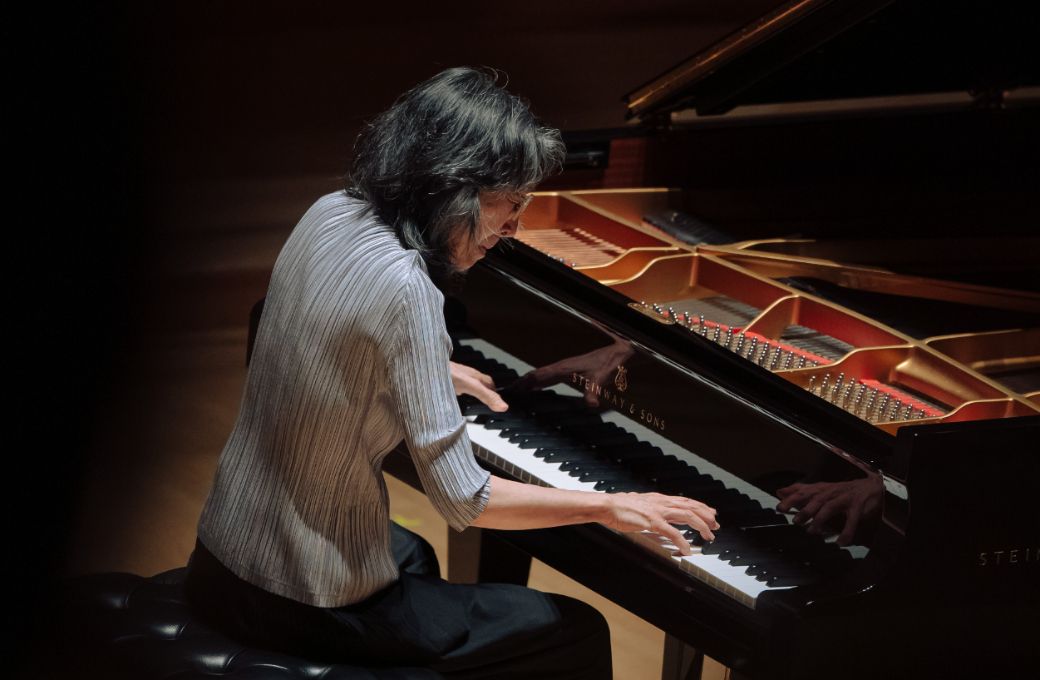The Philadelphia Chamber Music Society counts among its collaborators many of the world’s leading artists, but they have perhaps no greater friend than Dame Mitsuko Uchida. The star soloist appears on their piano series nearly every season, bringing on 19th February a program of Beethoven’s final three piano sonatas – the “Holy Grail” of this repertoire, as artistic director Miles Cohen put it in his pre-concert remarks. Familiar though the material may be, Uchida demonstrated how decades of living with this music can still reveal new insights, and how an artist who refuses to rest on her laurels can still entertain and edify.

In the first half of the evening, Uchida took the Piano Sonata no. 30 in E major, Op.109, and the Piano Sonata no. 31 in A flat major, Op.110, without pause. Her technical prowess showed immediately in her ability to differentiate the assertive opening notes of the E major from the gentle tempo shift that immediately follows, executed as naturally as turning the pages of a book. Likewise, she brought gorgeous proto-Romantic phasing to the A flat major’s Moderato cantabile molto espressivo without ignoring the movement’s appoggiaturas. Still, Uchida’s glorious playing extended far beyond mere precision. The runs in 109’s brief Presstissimo movement were accomplished with such flourish they sounded like improvisation. Throughout the conclusion of 110, she brought to the fore all the dramatic elements of a return to life, her robust sound gaining in strength to an almost ear-shattering finale.
The Piano Sonata in C minor, Op.111, occupied the entire second half of the concert, in a reading that found Uchida both playful and aggressive. After dispatching the opening movement with a jarring intensity, she brought a dancing quality to the Arietta, underlining in her distinct treatment of each variation the composer’s inventiveness right up until the end of his life. Trills sounded bell-like and jolly one moment, deeply foreboding the next. The high-lying passages at the end of the composition held an appropriately ethereal quality, rising until the music vanished into a long-held silence.
The sold-out audience practically begged for an encore, which Uchida politely declined. But who could blame us for trying? When you hear playing at this level, sustained over 90 minutes, you simply don’t want it to end. Even if I’d left at the interval, this would still rank among the great concerts of my life, the kind of night that would make anyone fall in love with music.


